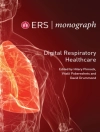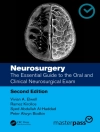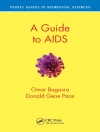This book presents in detail the problems and ethical challenges in daily oncological practice.
In western industrialized countries, roughly 25 percent of all citizens still die from cancer. Despite significant progress in basic science and in individual areas of clinical care, even in the 21st century, being diagnosed with cancer has lost none of its dread and can still be a death sentence. This situation raises many problems and challenges for medical ethics, e.g., the question of the benefits and risks of prevention programs, or the right to know and not to know.
Clinical trials with cancer patients and quality assurance for surgery, radiotherapy and medication also pose a series of ethical dilemmas. Furthermore, cancer treatment is a psychological challenge not only for patients but also for physicians and caregivers. The issues of adequate pain management and good palliative care, of treatment limiting and the question of assisted suicide at the end of life also have to be considered. In order to reflect the subject’s diverse and multifaceted nature, the book incorporates legal, ethnographic, historical and literary perspectives into ethical considerations.
Inhoudsopgave
Cancer as an ethical challenge.- Historical aspects of the „fight against cancer.- One in four dies of cancer.” Questions about the epidemiology of malignant tumors.- Ethical issues related to human papillomavirus vaccination programs: an example from Bangladesh.- Ethical challenges around cell lines in cancer research.- Risk-adapted prevention. Governance perspective for benefits of genetic (breast cancer) risk.- The right to know and not to know: predictive genetic diagnosis and non-diagnosis.- Benefits and harms of cancer screening.- Ethical dilemmas in conducting clinical trials.- Ethical aspects in cancer drug approval, balancing individual versus societal perspectives.- Liver living donation for cancer patients: benefits, risks, justification.- Quality assurance of cancer medication and the challenge of biosimilars.- Cancer in children.- Pain and palliative medicine.- Advance directives for medical decisions.- Euthanasia and assisted suicide.- Doctor’s health and the health ofcaregivers.- Diagnosis breast cancer. An ethnographic study of illness and disease.- The patient’s view.- The patients‘ advocate.- Cancer in literature.
Over de auteur
Axel W. Bauer studied medicine at Freiburg University and graduated in 1980. In 1986, he completed his “habilitation” (postdoctoral studies) in the field of History of Medicine at Heidelberg University. Since 2004, he has been Professor of History, Philosophy and Ethics in Medicine and Head of this Speciality at the Medical Faculty Mannheim, Heidelberg University. From 2008 to 2012, he was a member of the German Ethics Council in Berlin. Since 2019, he has been a member of the European Academy of Sciences and Arts in Salzburg. His main areas of research are the history of pathology and pathological anatomy, institutionalization of medical disciplines, development of scientific medicine, medical ethics and bioethics. He has published more than 500 original papers and 20 books on these subjects.
Ralf-Dieter Hofheinz studied medicine at Heidelberg University and at the University of La Plata, Argentina. He graduated in 1998 and trained in Internal Medicine and Medical Oncology at the University Medical Centre Mannheim, Heidelberg University. Since 2010, he has been Head of the Oncological Outpatient Department at the University Hospital Mannheim. A member of the steering committee of the AIO of the German cancer society, from 2012 to 2018, Hofheinz served as a national representative for Germany at the European Society of Medical Oncology (ESMO). His main fields of research are multimodality treatment of gastrointestinal tumors, new drug development, quality of life and PRO research, and medical history. He is a reviewer for several medical journals, including The Lancet Oncology and Journal of Clinical Oncology. Hofheinz has published more than 200 original papers, 50 book chapters and 4 books.
Jochen Sven Utikal studied medicine at Ulm University and graduated in 2001. After his residency in Dermatology at Ulm University and at the University Medical Centre Mannheim, Heidelberg University, he was Scientist and Research Associate at the Harvard Stem Cell Institute and the Massachusetts General Hospital Cancer Center. Since 2012, he has been Head of the Skin Cancer Unit at the German Cancer Research Center (DKFZ) and the University Medical Centre Mannheim. His main fields of research are translational melanoma research, stem cell features of tumor cells and target discoveries in the field of melanoma. He is a reviewer for several medical journals and has published more than 240 papers in peer-reviewed international scientific journals, as well as 13 book chapters.












